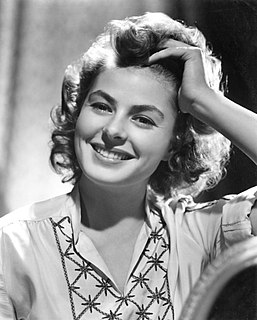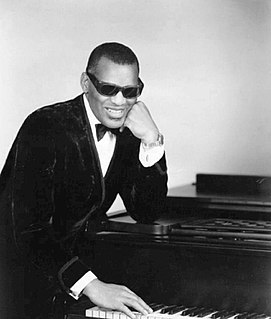A Quote by Ingrid Bergman
It's not whether you really cry. It's whether the audience thinks you are crying.
Related Quotes
I saw one of the absolute truths of this world: each person is worrying about himself; no one is worrying about you. He or she is worrying about whether you like him, not whether he likes you. He is worrying about whether he looks prepossessing, not whether you are dressed correctly. He is worrying about whether he appears poised, not whether you are. He is worrying about whether you think well of him, not whether he thinks well of you. The way to be yourself ... is to forget yourself.
It's not a matter of how much you know or can define, or how many millions of mantras or thousands of prostrations you have done, or how many months of wangs you've attended. The important thing is whether or not the mind is really changing, whether our negative emotions are really coming under control, whether we are really beginning to understand ourselves, whether our mind is really improving, and whether in our hearts there is genuine love and caring for other people.
I suppose I've always done my share of crying, especially when there's no other way to contain my feelings. I know that men ain't supposed to cry, but I think that's wrong. Crying's always been a way for me to get things out which are buried deep, deep down. When I sing, I often cry. Crying is feeling, and feeling is being human. Oh yes, I cry.
And that's when I realized that there's really two ways people cry. You cry when you're sorry for yourself, and then you cry when you are really sad. The tears you cry for yourself? Those are kid tears. You're crying because you want somebody to help you or pick you up. Your mom, your dad, the old lady next door... anyone.
I'm trying to teach my children not to cry. That's the big thing. No crying. Because I think we can all agree that crying is, for the most part, for sissies. If my team loses, I'm going to cry. And I'm going to want my kids to see me crying. Not because I think sports are so important, but because I bet so much money on the game that we'll probably lose the house if my team doesn't win. That's something to cry about.
Acting is bad acting if the actor himself gets emotional in the act of making the audience cry. The object is to make the audience cry, but not cry yourself. The emotion has to be inside the actor, not outside. If you stand there weeping and wailing, all your emotions will go down your shirt and nothing will go out to your audience. Audience control is really about the actor
We see films all the time, whether they have access to all kinds of intellectual property or artifacts, and the one thing that they don't get is story. So I think whether you're talking about a biopic or an action film or a science-fiction film that has all the CGI in the world, if you're not trying to connect with an audience, it doesn't really matter.



































